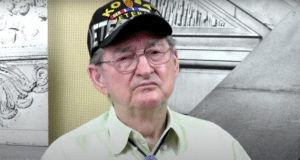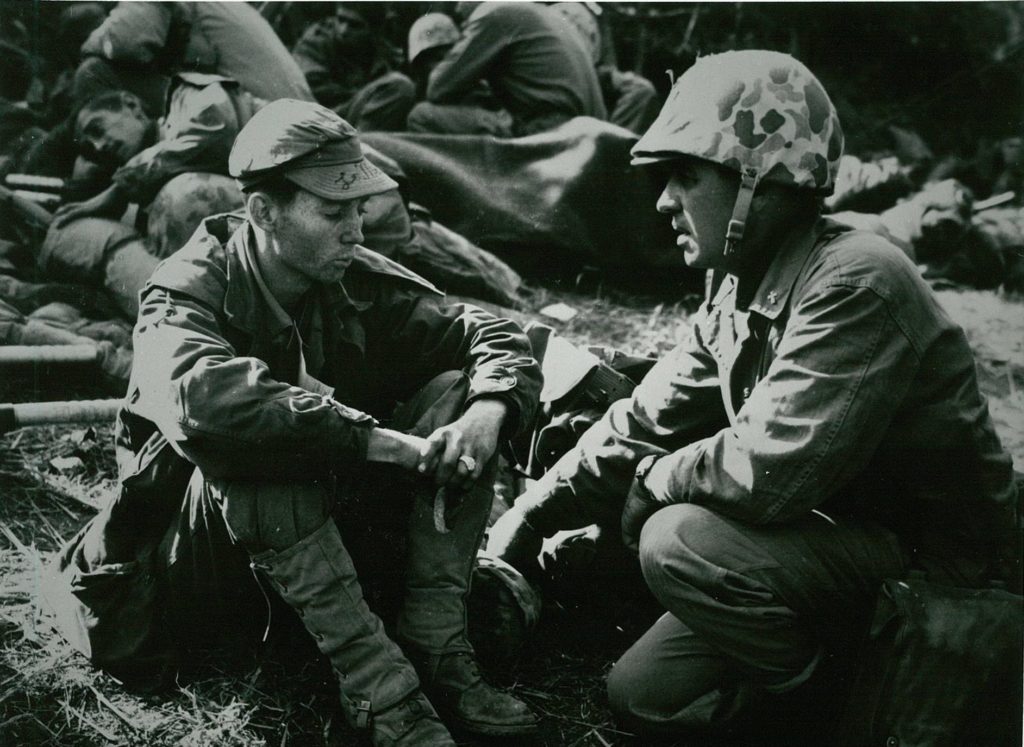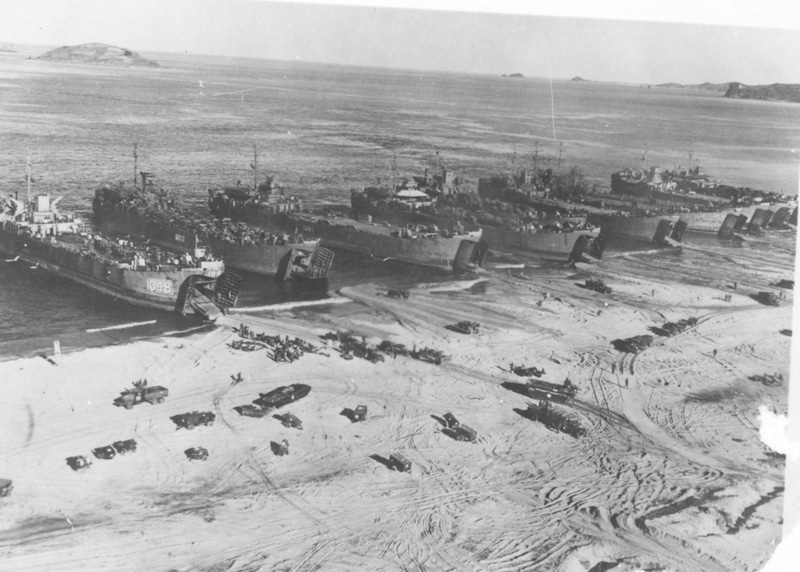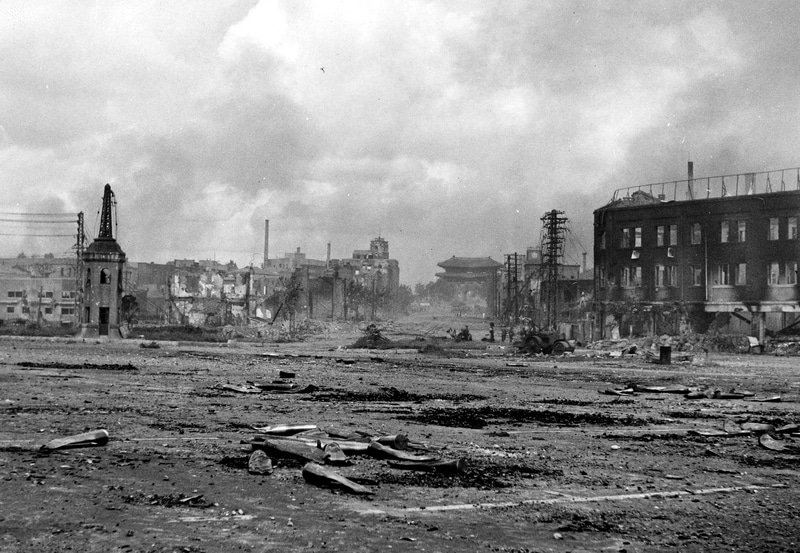ALPHARETTA, Ga. – When Charles Fowler received his orders to go to Korea in the summer of 1950, he did not fully understand why he was going to fight other than knowing that North Korean forces had invaded South Korea and nearly taken the entire peninsula.
“My government sent me there, and if a war broke out now, I would obey my government,” Fowler, who was in his late teens when he enlisted in the Air Force in 1949, recalled. “I’m 88-years-old, but if push came to shove, I’d bear arms now and go into service.”

Today, Fowler has a deeper appreciation for the significance of the Korean War, a war in which he served as a combat engineer during the major offensive that shifted the balance of the conflict.
“The North Koreans and the Russians wanted the whole nation to be united, but they wanted it under Communist control,” Fowler said. “That was the biggest issue that was involved.”
This month marks the 70thanniversary of two key milestones in the conflict: the Sept. 15 landing at Inchon on the northwest side of Korea and the retaking of Seoul on Sept. 26. The move by General Douglas MacArthur to seize Inchon was deemed too risky at first by his contemporaries, but MacArthur eventually won the argument, proceeded and then secured Inchon.
Following back and forth advances and retreats across the infamous 38thparallel by both sides in the following months, the battle reached a stalemate in May 1951. Then, on July 27, 1953, military leaders from China, North Korea and the United Nations signed an armistice after two years of negotiations, putting an end to the fighting and establishing the 38thparallel as the permanent boundary.
At the height of the war, there were 185 U.S. military chaplains in Korea, and 72, nearly 40 percent, were Southern Baptist, including Chaplain John H. Craven, who baptized eight men around the time they landed at Inchon on Sept. 21—three in the troop transport’s evaporator tanks before they arrived and five after debarkation.

“In combat, a chaplain’s primary role is to provide the ministry of ‘presence,’ which means simply being with their troops in the midst of the chaos and confusion of war. God uses chaplains to strengthen and sustain the faith and morale of their troops, to provide comfort and peace to the wounded and dying and to conduct memorial ceremonies to honor the fallen in battle,” said Doug Carver, retired Chaplain (Major General) with the U.S. Army and executive director of chaplaincy at the North American Mission Board (NAMB).
Another Southern Baptist chaplain, Parker Thompson, who passed away in October 2018, volunteered to help carry five soldiers—one dead, the others wounded—out of a pitch-black minefield.
“In the Korean War, chaplains were frequently seen on the front lines carrying the wounded back to battle aid stations, assisting in the triage of casualties and kneeling in prayer over the dying,” Carver said. “They also helped evacuate wounded troops to Navy ships offshore that became floating hospitals.”
Southern Baptist Navy Chaplain, Homer L. Schnick, wrote an account about giving water to a solider wounded in the last moments of serious fighting before the 1953 truce. After the solider had been wounded, Communists had dragged him through the mud before his own men rescued him.
“The shock was most evident as the men were first brought in, but it was amazing to see the men return to normalcy so rapidly in the succeeding days that we visited them,” wrote Schnick of visiting the wounded. “One felt a real sense of mission as he assisted the doctors and corpsmen in their busy times.”

When Samuel Lee, a Korean American and NAMB’s director of Southern Baptist federal chaplaincy, reflects on the war, he thinks about more than the material and economic impact in Korea.
“The Korean War, when you look at it from a purely military perspective, it was an inevitable clash between the West and the expansion of Communism,” said Lee. “When people look at the expansion of Communism at the time, they often don’t consider the spiritual aspects and how Christianity was persecuted under Communism.”
Lee came to the United States after graduating from high school, and he entered the U.S. military as a chaplain as a way of serving both God and the nation that opened its doors for him to come study, the nation where he met his wife and started his family.
After becoming a military chaplain in 1991, Lee’s final role before transitioning to NAMB was the senior military chaplain in South Korea, which entailed him serving as Command Chaplain for the United Nations Command, Combined Forces Command and U.S. Forces Korea.
Each of these military commands maintain the sometimes uneasy peace that has persisted since the 1953 Korean Armistice Agreement, and Lee sees God at work in the outcome of the Korean War.
“So many North Korean Christians came to the south prior to and right after the Korean War,” Lee said. “God has been using Christians, their prayers and their faith, to fuel the rise of Christianity in South Korea.”
Now, North Korea consistently ranks as one of the world’s worst persecutors of Christians. South Korea is second behind the United States in terms of sending missionaries around the world. An estimated 33 percent of the population in South Korea is Christian, growing from a single digit percentage before the war.
Economically, South Korea has become one of the top 12 economies in the world while North Korea has one of the most restrictive economic systems.
“Generally speaking, the majority of Koreans are very grateful, especially to the United States for their active role in supporting the Korean government. During the war, America paid a big price,” Lee said.
Officially, nearly 37,000 American soldiers died in Korea, including 13 chaplains. Counting those who were missing in action, the number of those who gave their lives in the fight for freedom in Korea exceeds the known casualties.

Fowler, who served in Korea from July 1950 to July 1951, was a member of the unit that fought out of Pusan to meet the Marines that landed at Inchon in mid-September. He endured frostbite and earned accolades, but he returned to the States carrying the memories of the horrors of war.
“It’s terrible to see young men falling all around you and seeing the enemy get burnt stiff with Napalm,” Fowler said. “Any war is a tragedy.”
Only after the war, in 1964, did Fowler become a follower of Christ. He accepted a call to ministry, graduated from Southwestern Baptist Theological Seminary and pastored churches in Memphis, Oxford, Miss., and Pocatello, Idaho before retiring in 2002.
The Korean War is often referred to as “the Forgotten War” because it occurred between the end of World War II and the Vietnam War. South Koreans have not forgotten, neither have the surviving veterans nor the families of those who never returned.
This article was originally published by the North American Mission Board at namb.net

